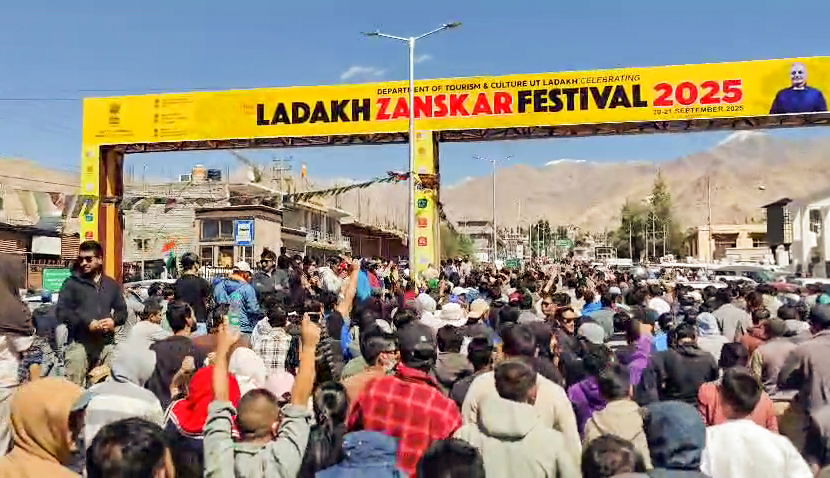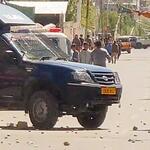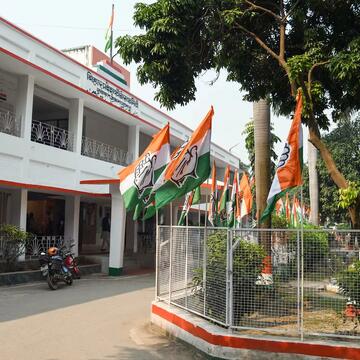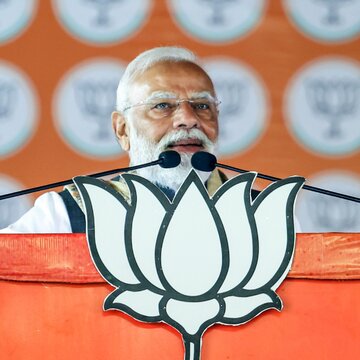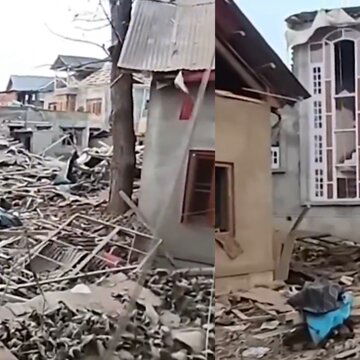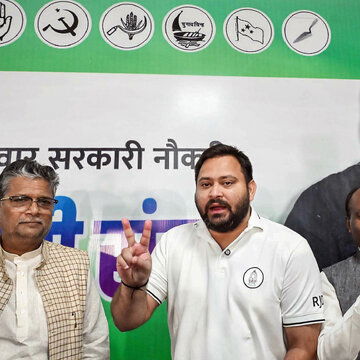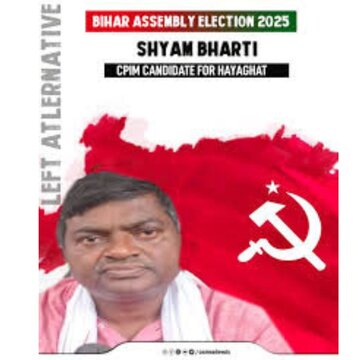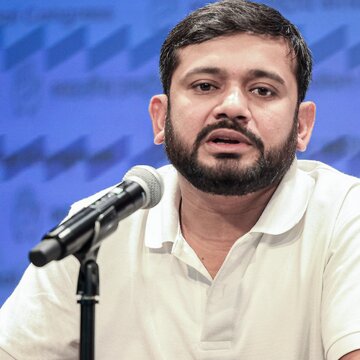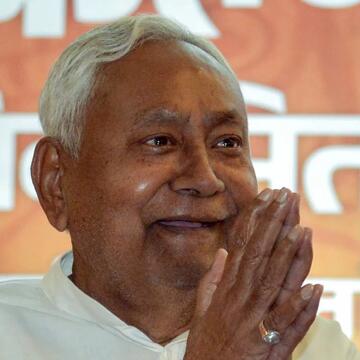Protests in the Ladakh Union Territory's Leh region erupted on Wednesday after agitators set fire to the city's BJP office, threw stones, and set a police van on fire. The agitation, which had been gaining traction for the previous few weeks, took a dramatic turn two days after leaders of the Ladakh Autonomous Body (LAB), an agitation group based in Leh, declared that they would not end their hunger strike until their main demands were fulfilled.
Since December 2024, the LAB has been in communication with the Union Ministry of Home Affairs (MHA), with the Kargil Democratic Alliance joining them. The MHA had scheduled the next round of negotiations for October 6, but LAB leaders objected to what they called their unilateral schedule dictation. Protests descended into violence on Wednesday, with arson incidents reported at the Leh office of the ruling BJP.
LAB co-chairman Chering Dorjey, speaking to PTI, “Our protest is peaceful, but people are getting impatient. The situation may get out of our hands... The talks have already been delayed,” he said.
Hunger strike of Wangchuk
Well-known activist Sonam Wangchuk, who had been participating in a 35-day hunger strike since September 10 under the auspices of the LAB, denounced the violence and abruptly called off his demonstration. Before the upcoming Hill Council elections, he had urged the central government, led by the Bharatiya Janata Party, to keep its pledge to include Ladakh in the Sixth Schedule of the Constitution.
Core demands
Full statehood- Ladakh wants complete political autonomy instead of being run as a centrally administered Union Territory.
Sixth Schedule inclusion- Ladakh should be placed under Article 244, which gives tribal regions more autonomy through Autonomous District Councils, according to protesters. They contend that doing so will protect regional governance systems, customs, and land rights.
Separate Public Service Commission- To tackle 26.5% graduate unemployment, protestors seek their own recruitment body for faster job opportunities.
Two parliamentary seats- Ladakhis want two seats in the Lok Sabha to represent the region's size and diversity, as they are currently only given one.
The demands for statehood and inclusion under the Sixth Schedule have been categorically rejected by the government, despite reports that it is open to discussing a local service commission and more parliamentary representation.


